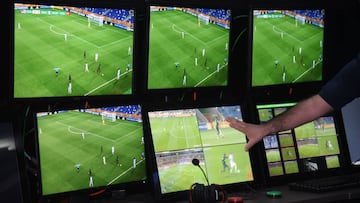Deloitte predicts a technological overhaul across football
Accountancy firm Deloitte have published their Annual Review of Football Finance and revealed the extent of COVID-19’s impact on Premier League clubs.


The pandemic hit at a time when football clubs were already becoming less profitable and the negative repercussions could cause huge changes in the way we consume football for years to come.
Matchday revenue has become less important to Premier League clubs in recent years but still accounted for around 13% of their annual income for 2018/19. With broadcasting and commercial streams likely to become less profitable, clubs will need to find more creative ways to broaden their market.
Massive Hit to Revenues
Predictably the pandemic is forecast to have a disastrous effect on club’s revenue with the 2019/20 season suspended for three months, continental competitions disrupted and games to be played behind closed doors for the foreseeable future.
However Deloitte’s financial analysis of the 2018/19 season found that clubs’ profits were already deteriorating before the pandemic took hold:
“It is clear that even before the onset of the COVID-19 pandemic there was some evidence of weakening cost control and profitability among Premier League clubs. The sudden hit to revenues will have compounded this and tipped many clubs into, or deeper into, a loss making position overnight”.
In each of the two previous seasons clubs’ wage expenditure had grown at a higher rate than its revenue, meaning that by 2019 Premier League teams were spending an average of 61% of their revenue on wages. With the vast majority committed to that spending throughout the period of coronavirus disruption, their losses will increase dramatically.

New Methods of Broadcasting Required
With fans unable to attend matches for the remainder of the 2019/20 campaign at a minimum, Deloitte suggest that greater innovation will be needed to recoup lost matchday revenue.
They predict that playing the final quarter of the season behind closed doors “will trigger the first ever drop in Premier League revenues” meaning that “revenue may fall to c.£4.3 billion (17% reduction from 2018/19)”.
To make up for this loss clubs will need to draw even greater broadcasting figures and developments trialled earlier this season could be vital. Amazon Prime secured the rights for this season’s Boxing Day fixtures and simultaneously broadcast six live games, allowing viewers to flick between matches.
Deloitte notes that the “popularity of the streaming services has increased through the crisis and it is very possible they could become more prominent in the future cycle.”
“An adaptation of existing business models is likely in the short-term at least as the industry adjusts to competing in a behind-closed-doors scenario, where the consumption preferences of fans watching from home become even more critical”.
‘Digital transformation’ of Fan Interaction
As well as hitting clubs’ revenues, playing in empty stadiums will make it more difficult for them to connect with their fans. Maintaining that interaction is vital for clubs’ broadcasting, commercial and sponsorship revenue.
Deloitte points out that while many top clubs already use technology to broaden their appeal, COVID-19 gives them extra reason to reach out to a global fan base.
Related stories
“To date, the efficacy of club existing digital strategies is mixed, with few clubs having truly embraced the breadth and depth of ‘digital transformation’ required to maximise results. The overnight, but enduring, impact of COVID-19 has forced clubs to accelerate change in how they interact with their fans on digital channels”.
Just as everything from office meetings to pub quizzes have moved online during the pandemic, clubs will need to find an alternative way to keep in touch with supporters.